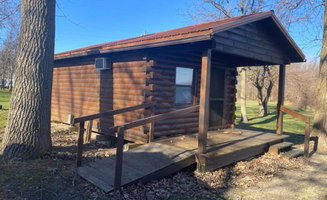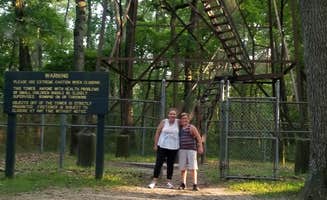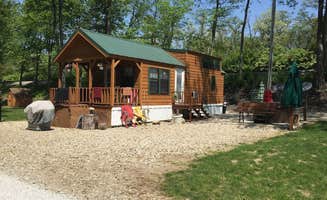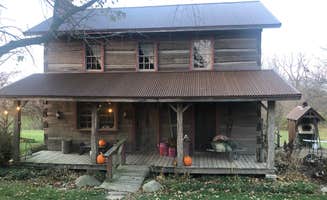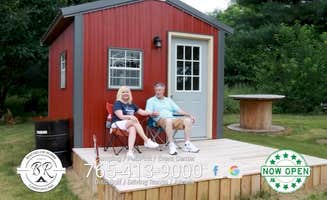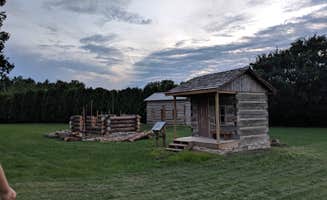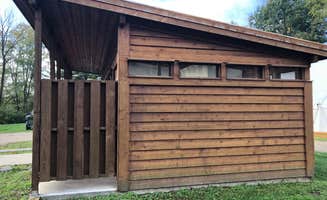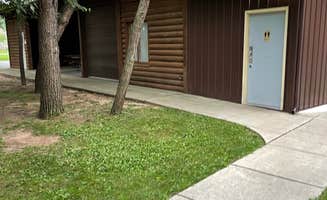Cabins near Rochester, Indiana provide shelter options in an area known for its wetland ecosystems and proximity to the Tippecanoe River. The region experiences four distinct seasons with humid summers reaching the mid-80s and winters often dropping below freezing. Most cabin accommodations require guests to navigate rural roads with limited lighting, making early arrival advisable.
What to do
River activities: The Tippecanoe River offers excellent paddling opportunities near Rising Sun Campground, where you can rent canoes, kayaks, and floats for river trips. "Located right on the beautiful Tippecanoe River with float, canoe, and kayak rentals," notes a visitor.
Hiking trails: Trail systems vary in difficulty throughout the area's parks. At Tippecanoe River State Park, "there is a firetower, which is fun for the kids and the hike to get there is short." For more challenging terrain, the state park offers additional trails, though some visitors note they "aren't really well marked either."
Wildlife viewing: Spring and fall offer prime wildlife viewing opportunities. According to one camper at Mississinewa Lake, "Winter camping so no showers/bathrooms. Great area, lots of wildlife. They have wifi by the water tower." The wetland ecosystems around cabin areas attract diverse bird species, particularly during migration seasons.
Star gazing: The rural setting provides excellent night sky viewing with minimal light pollution. A visitor to Mississinewa Lake Campground mentioned, "Amazing spot for stargazing," noting the clear night skies away from urban areas make astronomical observation particularly rewarding.
What campers like
Lake access: France Park features a unique quarry lake with exceptional water clarity. "The Quarry, wow! It was beyond stunning and never what I expected to see in an Indiana park," writes one camper. The park also offers fishing opportunities and walking trails around the water.
Quiet atmosphere: Many cabin sites provide peaceful settings away from busier campgrounds. A visitor to Tippecanoe River State Park described it as "the place to go for a quiet simple camping trip. There is no pool or camp store and cell service is limited so it is a great place to get away from it all."
Winter camping options: Several parks offer year-round cabin accommodations. At Chain O' Lakes State Park, cabins provide shelter during cold weather. The park offers winter activities including hiking and cross-country skiing when conditions permit.
Shaded sites: Mature trees provide natural cooling during summer months. A visitor to Tippecanoe River State Park noted, "An autumn stay to Tippecanoe River State Park was about as good as it gets for us. Mature wooded campground. Plentiful level grassy tent spots to put up a tent."
What you should know
Cabin amenities vary widely: Facilities range from rustic to modern across different parks. At Hoffman Lake Campground, "We stayed at C-2 and it was a full hookup with a level clean dry concrete pad," but other cabins across the area may be more basic.
Reservation timing: Bookings for summer weekends fill months in advance, especially for waterfront cabins. Many parks use the Indiana DNR reservation system with a 6-month booking window. Holiday weekends typically require booking the full day the reservation window opens.
Cell service limitations: Coverage can be spotty depending on carrier and location. At Tippecanoe River State Park, one camper reported, "I have AT&T service and could not use my phone at all, my husband has Verizon and had no problems with cell service."
Seasonal challenges: Summer brings mosquitoes while winter requires additional preparation. At Tippecanoe River State Park, one visitor simply stated, "Worst place for mosquitoes," while others recommend spring and fall visits to avoid peak insect activity.
Tips for camping with families
Playground access: Choose sites near play areas for convenience. At Potato Creek State Park, the campground layout offers family-friendly options with "parks, lake; this place had all the amenities we needed," though some visitors noted water quality concerns.
Kid-friendly trails: Potato Creek State Park offers accessible paths for younger hikers. "Trail number one, which is a 1 mile weird loop that has some neat scenery, especially in the summertime" provides manageable distances for children.
Activity planning: Many parks offer seasonal ranger programs and events. At Tippecanoe River State Park, one family "did participate in a star gazing event being held that weekend and it is still something my husband and I talk about regularly."
Safety considerations: Limited lighting makes flashlights essential for evening activities. Primitive cabin areas may have uneven terrain, requiring careful supervision of younger children after dark.
Tips from RVers
Site selection: For cabins near RV areas, check proximity to dump stations and generators. At Mississinewa Lake Campground, "if you don't haul with water you better fill up at the full station when you see it cuz it gets busy. And when you are leaving there are 3 dump stations and it can get really really busy and long waits."
Electrical capacity: Confirm amperage available if using heating or cooling equipment. Older cabins may have limited electrical service, restricting the use of multiple appliances simultaneously.
Parking limitations: Some cabin areas have restricted vehicle access or parking. Larger trucks and trailers may need alternative parking arrangements at certain cabin locations, particularly in more rustic settings.
Winter access: Check road conditions and snow removal policies during colder months. Some access roads to cabin areas receive limited maintenance during winter, potentially requiring vehicles with appropriate clearance and traction.


